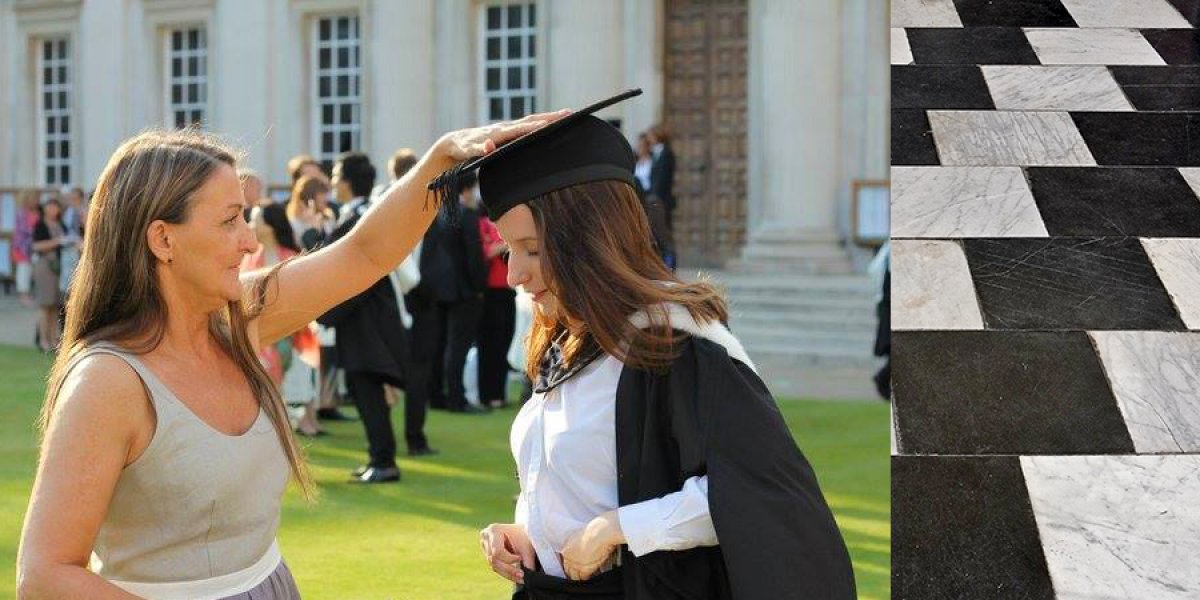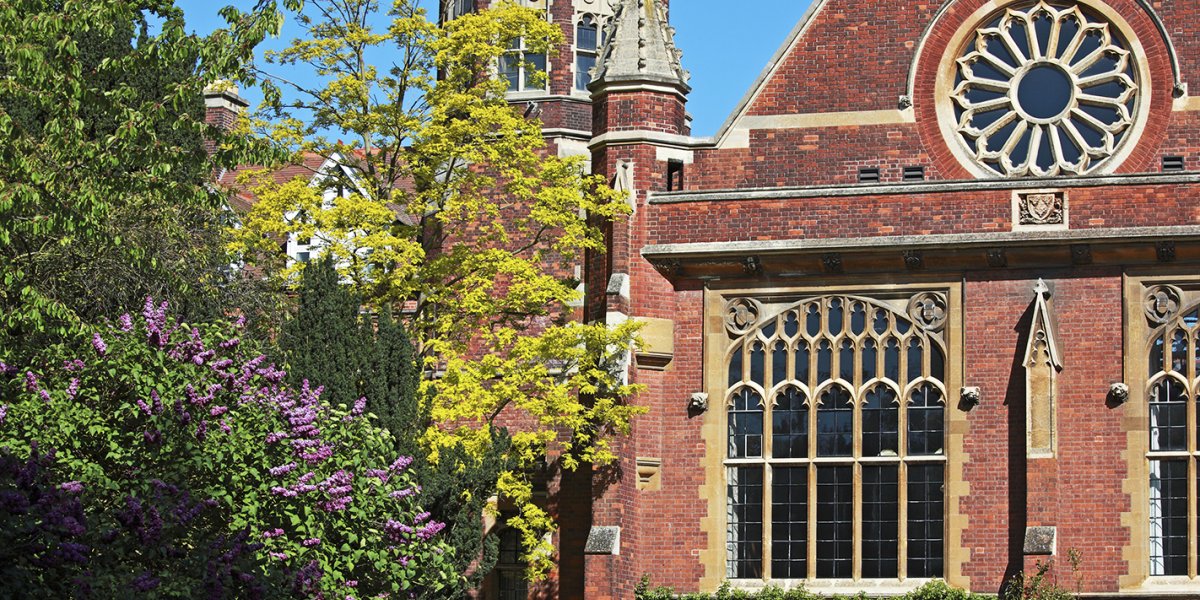A journey to journalism: coming full circle - Jessica Labhart
Jessica Labhart (Homerton 2008) was the first person in her family to go to university. She describes her experiences of application, interview, studies, graduation and career.
The friends I made there are the closest ones I have to this day, and though we may live in different cities, we have that shared remarkable experience that none of us will ever forget.
My story I think is one that may not be particularly dissimilar from many currently at Cambridge.
I’m the first person in my family to go to university, and indeed the first [of my family] to leave my hometown of Wolverhampton for those formative four years. I was the nerdy kid at school, the only one in its history to make it to Cambridge. I spent a lot of my childhood helping my mother care for my late father, who was diagnosed with primary progressive MS when I was three years old.
I can still remember when I got the letter to say I’d got in. I was on the school bus going home with my younger sister after someone at my comprehensive state school asked me whether I’d heard anything about my application. I hadn’t, and I was convinced it was a bad omen. But when I got in the house, I discovered my mother had left me the acceptance letter to open myself. I knew it must be good news, because the envelope was quite full! I ran around the house screaming, while my sister rang all our family to tell them the news.
After four years at Cambridge, where I received full maintenance grants, won the George Peabody Scholarship, the Shuard and Simms Prize and the Charter Scholarship, I have been able to reflect on my experience there.
The journey to journalism
People outside Cambridge, generally assume that everyone at the University is rich, posh and privileged, with a particular outlook and particular politics. I certainly beg to differ.
At one point in my Cambridge career, I was genuinely quite poor. So poor, I had around £250 to last me an eight-week term. This was during my MPhil in Screen Media and Cultures, on which I spent all my savings. I managed to secure a hardship grant from my College, and made that last the entire nine months. It wasn’t easy, but what I learned and experienced at Cambridge was worth it, though when I was one of four people to get onto the PhD programme, I couldn’t afford the £53k price tag.
Once I graduated, with Distinction, I had to move home. I was on the dole for three weeks trying to find a job, and spent the weekends emptying the penny jars in my house to take to the bank with my sister. I eventually found a job as a recruitment officer at a care company, a role I worked in for three months before being promoted to PA to the directors. During the next two years, I discovered I really enjoyed writing the company’s articles and newsletter, and remembered the work experience I did at the local paper, the Express & Star, when I was 15.
After two years, I saved enough money to make the jump to London, where a lot of my Cambridge friends had immediately moved after graduating. I built up the courage to apply for a place at News Associates, Wimbledon, and managed to pass the entrance exam. After that, I secured a job as a PA in a Government body, where I worked for 15 months.
My time at News Associates resulted in me being accepted on work placements at the Coventry Telegraph and the Express & Star. I wrote for Southwest Londoner, the Hillingdon and Uxbridge Times and the Ealing Times whilst working full time, before managing to get a freelance job at the London Evening Standard for a few months. Working from 4pm to 2am at the Standard, then getting up to go to my normal day job from 8am was tough, but it made me realise how important journalism was to me, and how much I really wanted to be a reporter.
Standard to Star
I was one of three people who got accepted on an unpaid internship scheme at the Guardian in late 2015 and spent around three weeks working at their Culture, Membership, Multimedia and Public Services desks. I met people who made me realise that I could be a full time journalist, and that gave me the boost to apply for a job at the hometown paper, where my journey to Cambridge began about ten years prior.
I managed to get the job as a reporter at the Express & Star, and have so far since spent three months working my socks off – reporting on massive industrial fires, car crashes, major court cases, and most recently, the discovery of a body in the local canal. (There’s also been a lot of positive stories too, it’s just that these are the ones that stick in my mind!) The paper has taken a chance on me and the decision to move home has been the best one I’ve made since going to Cambridge.
I’m richer, I’m healthier, I have a job I love in a patch I know all too well and ultimately, it feels like I’ve come full circle. My experience at Cambridge was out of this world, with the balls, the formals, the bops, the mad nights out at Cindies and the intense all night study sessions. The friends I made there are the closest ones I have to this day and though we may live in different cities, we have that shared remarkable experience that none of us will ever forget.
Outside of the bubble
But Cambridge is only part of the story, and once you’ve graduated, you realise how different the real world can be outside of ‘the bubble’. It’s tough, it takes no prisoners, and it probably will misunderstand you, in a big way. But ultimately, it’ll set you in good stead for whatever you decide to be, even if you realise that where you belong is where you came from all along.
Jessica has a Master of Arts, MPhil Screen Media and Cultures; BA (Hons) in English, Drama and Education. She attended Homerton College throughout.
If you would like to submit your own alumni story, send us an email for details of our submission guidelines.
This article has been written by Jessica Labhart and the opinions expressed are those of the author.

